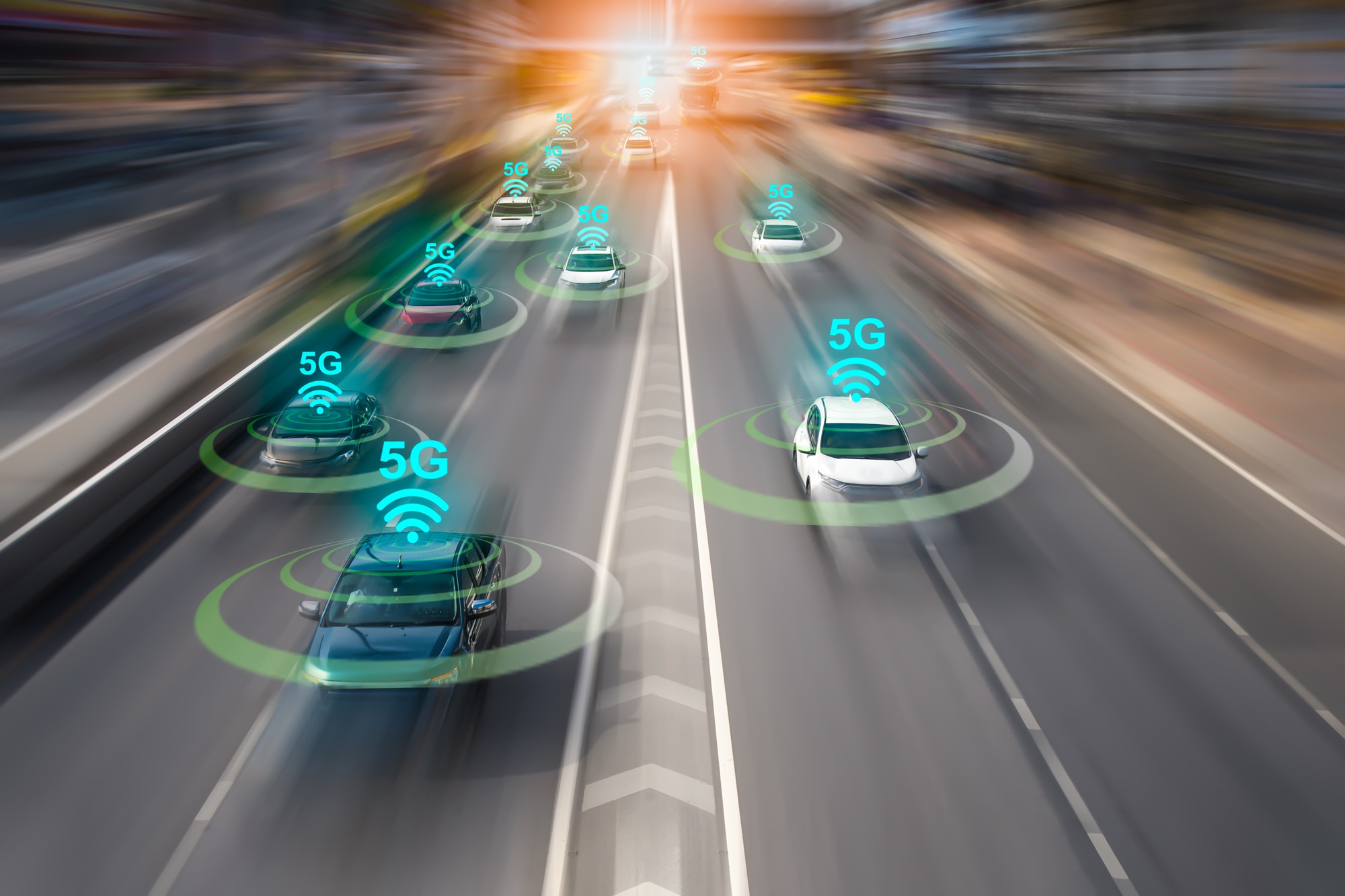How 5G Will Change the Cars We Buy and How We Drive
Higher internet speeds promise to improve the connected car experience.
 Shutterstock
Shutterstock
What is 5G?
Mobile carriers are in the process of rolling out the fifth-generation wireless network: 5G. The latest and greatest in Wi-Fi capability, it succeeds 4G, which is still in use, and 3G, which mobile carriers are phasing out by the end of the year (to the detriment of many car owners). The new network will allow for near instantaneous communication between a source and a destination, opening the door to new technologies that could transform virtually every industry.
What Makes 5G Better Than 4G?
The 5G network has quite a few advantages over its predecessor. First, its data upload and download speeds are many times faster than 4G’s. Second, 5G promises ultra low latency (i.e., the time it takes for data transfer to begin). And third, it provides considerably more network capacity, meaning 5G can handle a lot more traffic at a given time than 4G.
How Will 5G Change the In-Car User Experience?
For one thing, data transfer will work a lot more smoothly. On 4G, one passenger could have a conference call on a laptop while another queued up a YouTube video on their phone, but the connection speed and/or picture quality of each effort likely suffered. The fifth-generation network, however, offers higher bandwidth than the fourth, which will make multi-device streaming less of a problem: Someone could have a lag-free Zoom call on the road while another rider watches Shrek 2 on Hulu in perfect clarity.
Further, with 5G, the car could notify the driver of nearby accidents, approaching bad weather, and other episodic events in real time (rather than at a slight delay, as is the case with 4G). The infotainment screen could offer more data-intensive applications and richer maps too. And automakers could improve on vehicle-to-infrastructure technologies, such Audi’s Traffic Light Information feature, as well as send over-the-air updates more rapidly, reducing downtime for the vehicle.
How Will 5G Affect Autonomy?
The speedy transfer of data will enable vehicle-to-vehicle communication, which has the potential to accelerate autonomous technologies. For instance, were vehicles able to share sensor data with one another, they could coordinate their speeds and positions and cooperate to make the road a safer place. Perhaps one car would slow down to allow another to pass, or a vehicle might spot an obstruction in its lane and alert cars in its wake to change lanes to avoid it. This would not only help prevent collisions but ease traffic congestion.
Additionally, with 5G’s greater bandwidth, automakers can collect more data about our roads (e.g., their curvature, pothole locations, etc.) and use it to inform their GPS-dependent hands-free driving systems on the path to full autonomy.
Written by humans.
Edited by humans.
 Nicole Wakelin
Nicole WakelinI write about cars. A lot. That's because I’ve always loved cars and the fact that they regularly hand me the keys to shiny new automobiles so I can write about them is a constant source of amazement. I cover breaking news, write reviews, and attend auto shows and new vehicle launches across the country. The more winding the road and the more unknown the route, the better.
Related articles
View more related articles